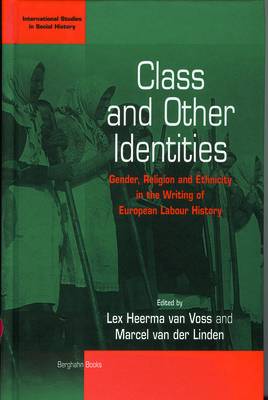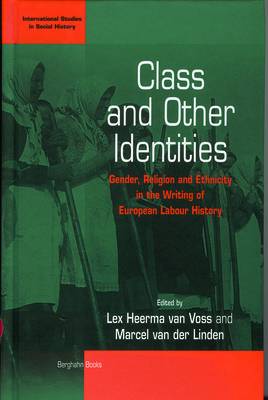
- Afhalen na 1 uur in een winkel met voorraad
- In januari gratis thuislevering in België
- Ruim aanbod met 7 miljoen producten
- Afhalen na 1 uur in een winkel met voorraad
- In januari gratis thuislevering in België
- Ruim aanbod met 7 miljoen producten
Class and Other Identities
Gender, Religion, and Ethnicity in the Writing of European Labour History
Omschrijving
With the onset of a more conservative political climate in the 1980s, social and especially labour history saw a decline in the popularity that they had enjoyed throughout the 1960s and 1970s. This led to much debate on its future and function within the historical discipline as a whole. Some critics declared it dead altogether. Others have proposed a change of direction and a more or less exclusive focus on images and texts. The most constructive proposals have suggested that labour history in the past concentrated too much on class and that other identities of working people should be taken into account to a larger extent than they had been previously, such as gender, religion, and ethnicity. Although class as a social category is still as valid as it has been before, the questions now to be asked are to what extent non-class identities shape working people's lives and mentalities and how these are linked with the class system. In this volume some of the leading European historians of labour and the working classes address these questions. Two non-European scholars comment on their findings from an Indian, resp. American, point of view. The volume is rounded off by a most useful bibliography of recent studies in European labour history, class, gender, religion, and ethnicity.
Specificaties
Betrokkenen
- Uitgeverij:
Inhoud
- Aantal bladzijden:
- 256
- Taal:
- Engels
- Reeks:
- Reeksnummer:
- nr. 2
Eigenschappen
- Productcode (EAN):
- 9781571813015
- Verschijningsdatum:
- 1/06/2002
- Uitvoering:
- Paperback
- Formaat:
- Trade paperback (VS)
- Afmetingen:
- 140 mm x 216 mm
- Gewicht:
- 303 g

Alleen bij Standaard Boekhandel
Beoordelingen
We publiceren alleen reviews die voldoen aan de voorwaarden voor reviews. Bekijk onze voorwaarden voor reviews.








